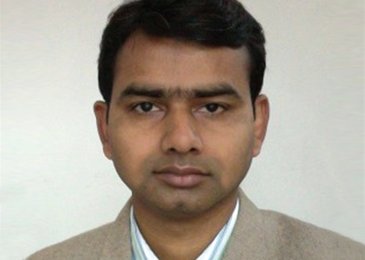Next-gen biofuel engineer - <I>Dr Syed Shams Yazdani</I>
February 20, 2013 | Wednesday | Features | By Rahul Koul Koul
Next-gen biofuel engineer - <I>Dr Syed Shams Yazdani</I>
Dr Syed Shams Yazdani, group leader, synthetic biology and biofuel group; coordinator, DBT- ICGEB, Centre for Advanced Bio-Energy Research, New Delhi
In his relatively short biofuel research stint of four years, Dr Syed Shams Yazdani was instrumental in developing and patenting two technologies for cellulolytic enzyme production and one breakthrough technology for converting C5/C6 sugars to ethanol. His team is currently in the process of evaluating industrial potential of these technologies with Indian Oil Corporation and Rossari Biotech, and if successful, these technologies will be scaled-up in the industry and used for commercial applications.
Interestingly, Dr Yazdani's earlier experience as malarial researcher led him to generate few technologies for the production of three malaria vaccine candidates that are much relevant to the current societal needs.
At present, Dr Yazdani is leading the Department of Biotechnology (DBT) - International Centre for Genetic Engineering and Biotechnology (ICGEB) Centre for Advanced Bioenergy Research, to further expand the bioenergy research program and exploit the intellectual properties for commercialization. The team is designing enzyme systems for effective hydrolysis of agricultural residues and developing microbial strains for production of advanced biofuels. Harnessing the potential of algae for biofuel production is another important research area of the Centre.
Dr Yazdani started his research in 1994 and holds a doctorate in biotechnology at Jawaharlal Nehru University, New Delhi, where he developed a cost-effective technology for recombinant streptokinase production. The transferring of this technology to Shantha Biotechnics, Hyderabad, gave him tremendous confidence in translating academic research into commercially exploitable entity. This also prompted him to join the malaria vaccine development group at ICGEB in 2000, where he had set up a process development laboratory. His R&D work there was supported by the Bill Gates Foundation, European Malaria Vaccine Initiatives and DBT. The technologies developed were transferred to Bharat Biotech, Hyderabad for cGMP production of vaccine antigens and to Serum Institute of India, Pune for cGMP lyophilization.
The potential of synthetic biology to bring revolutionary change in the research field attracted his attention. He therefore joined the Rice University in Houston, USA for a year on sabbatical (2007-08) with the funding support from DBT and Rice University, where he demonstrated the skill of an engineered laboratory bacteria in converting crude glycerin, an industrial waste into bioethanol. Upon his return to India, he established a synthetic biology and biofuel group at ICGEB in 2008.
Talking about the mantra behind success, Dr Yazdani says, "All the research that I performed to develop these technologies are close to my heart. But, my current research on biofuels has very high potential to bring self-dependency to our country."
Dr Yazdani feels that there is a lack of platform for interaction between academics and industries in India. He opines, "More often, industries doubt the success of lab-scale technologies developed at the institutes. Therefore it is desirable that the academic research groups, who are interested in product development should adopt good lab practices (GLP) approach for documentation and create a scaled-down infrastructure to develop processes easily adoptable by the industries."









